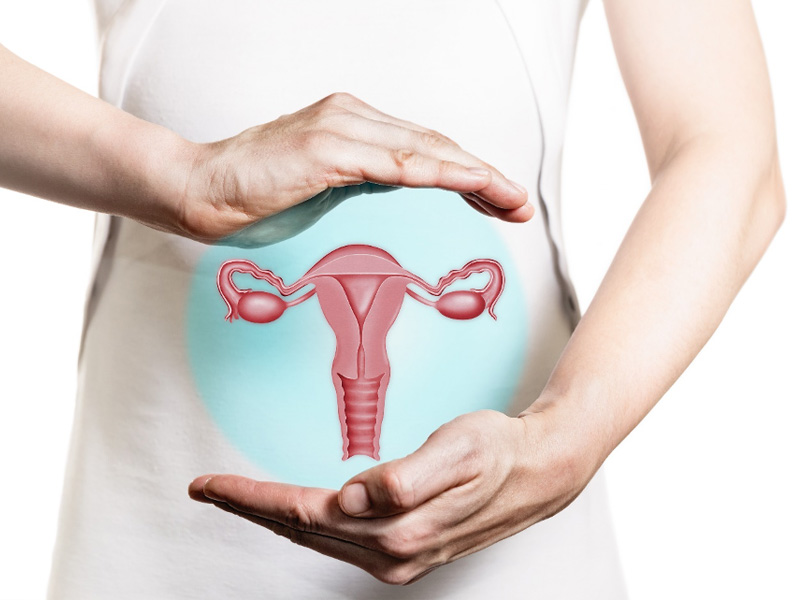Did you know that at least 600,000 hysterectomies are performed annually in the United States? If you’re part of these statistics, you’re familiar with the dramatic changes that can happen in your body due to hormonal imbalance after a hysterectomy.
Whether you’ve had a partial, total, vaginal, or abdominal hysterectomy, one of the main consequences of this medical procedure is a sudden decrease in the production of hormones essential to your sexual and overall health.
So, if you’re not feeling yourself after a hysterectomy, with symptoms affecting your mental and physical health, you can blame it on hormonal imbalance. But there’s hope available with BHRT.
In this article, we’ll help you
- understand what happens to your body after a hysterectomy,
- identify symptoms of hormonal imbalance, and
- find treatments to bring your hormone levels back on track.
Hormonal Imbalance after Hysterectomy: What’s Going On?
So, your doctor recommended a hysterectomy to treat your health condition once and for all. You were happy to find a solution to your discomfort… until you realized your pain was actually replaced by something equally unwelcome!
Instead of heavy bleeding and painful periods, you’re now depressed, anxious, or suffering from insomnia.
And the symptoms aren’t limited to your mental state. You may be experiencing hot flashes, vaginal dryness, urinary incontinence, and many other disorders, including the following:
- Poor quality sleep or difficulty sleeping
- Night sweats
- Irritability
- Mood swings
- Bone density loss
- Racing heart
- Pain during sex
- Bone fractures
- Irregular periods or absence of periods (amenorrhea)
- Low libido
Does that sound familiar? It’s more common than you think after a hysterectomy.
That’s because, regardless of why you had a hysterectomy, and how the surgeon did it, one thing is certain. It will take a toll on your hormones and, consequently, on your quality of life if you don’t get treatment.
Your hormones are the chemical messengers responsible for ensuring your body functions well. However, hormonal imbalance after a hysterectomy means your body is functioning less well.
Depending on the kind of hysterectomy you get, the operation seriously compromises – or entirely removes – your primary source of estrogen, testosterone, and progesterone. This causes you to experience aspects of surgical menopause, regardless of your age.
Unlike natural menopause, which happens after years of a gradual decrease in hormone production, surgical menopause provokes a sudden drop in essential hormones.
That’s why you’re now experiencing hormonal imbalance after your hysterectomy. It’s unavoidable. But you don’t need to settle for it if the symptoms are bothering you.
With Bioidentical Hormone Replacement Therapy (BHRT), you can rescue yourself and recover your zest for life.
But before digging into BHRT and its wonders for your health, let’s first talk about different kinds of hysterectomies and their consequences for your body.
Different Kinds of Hysterectomy and Hormonal Imbalance
Different health conditions require different hysterectomies – which affect your hormone production in different ways. Your doctor is responsible for deciding the type of hysterectomy you should have, based on your condition or the gravity of the situation.
This might be to treat pain and symptoms caused by conditions such as:
- Endometriosis
- Chronic pelvic pain
- Fibroids
- Heavy and painful periods
- Uterine prolapse
But because different types of hysterectomy differ from each other, your hormonal imbalance afterwards will also differ. So, let’s look at each.
A hysterectomy involves entirely or partially removing the uterus, ovaries, and other neighboring organs, such as the fallopian tubes. And hysterectomy surgery can be vaginal or abdominal, depending on its kind.
A total hysterectomy is the most comprehensive, consisting of removing your uterus, ovaries, fallopian tubes, cervix, and sometimes a part of your vagina. This procedure is usually recommended to treat cancer or other severe health condition, and it’s the one that causes the most dramatic hormonal imbalance in your body after the hysterectomy.
In a partial hysterectomy, on the other hand, the surgeon removes only the upper part of your uterus but keeps your ovaries and cervix.
In that case, your ovaries will still produce hormones, but at a lower level, because the blood supply between your uterus, the fallopian tubes, and the ovaries will be compromised. This also causes a decline in estrogen, progesterone, and testosterone production and may lead to ovarian dysfunction or failure.
Lastly, if you have, for example, ovarian cancer, there’s a big chance you’ll need an oophorectomy – when the surgeon removes one or both ovaries (if they also remove your fallopian tubes, the procedure is called a salpingo-oophorectomy).
You can read more about what to expect physically after your hysterectomy here.
But regardless of the type of hysterectomy you have, if you don’t want to compromise your quality of life, you’ll need hormone replacement therapy to compensate for the sudden natural interruption caused by the surgery.
So – what’s the best treatment to ensure you live well and restore hormonal balance after a hysterectomy?
BHRT to the Rescue for Hormonal Imbalance After Hysterectomy
At Nava Health, we believe that BHRT is a much better option than synthetic hormones to address the symptoms of hormonal imbalance after a hysterectomy.
There are two reasons:
1 Bioidentical hormones are identical to the hormones your body naturally produces, dramatically reducing the side effects that synthetic drugs can cause.
2 And, unlike synthetic hormones made in a lab, bioidentical hormones are plant extracts. Their molecular structure is identical to your natural hormones, so your body is already familiar with them. This greatly increases the chances of successfully treating your symptoms.
By restoring your estrogen, progesterone, and testosterone levels with BHRT, you’ll experience an improvement in your mood, energy, sleep quality, libido, bone health, thyroid function, and vitality.
At the same time – and this is the bonus – BHRT after a hysterectomy helps to prevent possible future health conditions related to hormonal imbalance, including the following:
- Arthritis
- Osteoporosis
- Heart diseases
- Dementia
- Parkinson’s disease
Whether you had a total or partial hysterectomy or had your ovaries removed, hormonal imbalance after a hysterectomy is not fun. Make sure to talk to your medical professional about having BHRT to bring your hormones back into balance and improve your quality of life.
Nava Can Help You Regain Quality of Life With BHRT
Have you undergone a hysterectomy and are you now suffering symptoms of hormonal imbalance?
Whether it’s a mild or severe imbalance, at Nava Health we have years of experience providing BHRT to address your symptoms and help restore your vitality.
You don’t need to live with hormonal imbalance after your hysterectomy. BHRT is a safe and efficient solution to help you feel your best at any age.
Contact us today and uncover a healthier, happier you!



